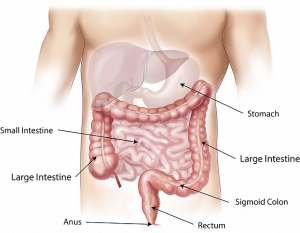You may not know it, that the cigarette smoke has hundreds of chemicals in it which are poisonous to your body.
As soon as you inhale, these deadly chemicals enter your lungs and start causing damage. The nicotine in cigarettes is considered a drug and is highly addictive. There are hundreds of chemicals found in cigarettes. Several of these chemicals are considered to be cancer-causing agents.
Cigarette smoke contains carbon monoxide which combines with blood cells to block oxygen flow through the body. This deprives all organs of the vital nutrients needed for good health and proper function.

Poisonous gases like chlorine gas and ammonia found in cigarettes can cause serious damage to the heart and respiratory system.
What you should know about gastritis
What happens in gastritis
People with gastritis may have swelling, inflammation and/or bleeding of different areas of the stomach lining. Gastritis is inflammation of the stomach lining while GERD involves inflammation of the esophagus as well.
Symptoms of gastritis
The symptoms may vary from person to person but usually include abdominal pain, indigestion, bloating and/or nausea. It usually lasts for a short time and gets better with rest and treatment at home. However, it can reoccur often or become chronic and lead to serious health problems.
Gastritis can cause pain in the upper part of your tummy (abdomen) that can move up towards your chest, making you feel sick and uncomfortable after eating. The pain is often worse when your stomach is empty.

If you have gastritis you may also experience nausea, vomiting, bloating, indigestion and a feeling of fullness in your tummy (abdomen). These symptoms are often called dyspepsia.
Common causes for gastritis
Gastritis has symptoms affecting the stomach lining and sometimes caused by an infection from H. pylori (Helicobacter pylori) bacteria or by nonsteroidal anti-inflammatory drugs (NSAIDs), such as aspirin, ibuprofen or naproxen.
Types of gastritis
Gastritis is a general term used to describe inflammation of the stomach lining. There are different types of gastritis, some of which are linked with specific underlying causes.
There are two types of gastritis, acute and chronic. Acute gastritis is sudden and occurs when there are large amounts of acid production or when there is trauma to the stomach lining. Chronic gastritis can be a result of smoking, alcohol use, autoimmune disease or infection by bacteria called helicobacter pylori.
The most common causes of gastritis include H pylori infection, which is linked with chronic atrophic gastritis. Smoking, alcoholism, drugs, stress are usually linked with acute erosive gastritis.
How smoking affects gastritis
Gastritis is worsened
Smoking cigarettes is bad for gastritis. Smoking is a risk factor for developing gastritis, and it can cause the condition to be worse or last longer. In some people, smoking may even cause ulcers to form.
When you smoke, the chemicals in tobacco can irritate your stomach lining. This can make gastritis worse. Gastritis is the medical term for an inflamed stomach lining.
Yes, smoking can worsen gastritis. Smoking is an irritant to the lining of the stomach, and it increases the production of stomach acid. The increased stomach acid may make your gastritis worse.
Smoking can worsen gastroesophageal reflux disease (GERD) as well. This includes both cigarettes and vaping.
Our body produces gastrin which signals to our stomach to produce acid for digestion. Gastric juice contains hydrochloric acid and enzymes that digest the food we eat.
Smoking cigarettes may increase gastrin secretion, which stimulates acid production in our stomachs. This leads to more damage to our mucosal lining of the stomach.
Smoking also causes a gastric ulcers which means severe damage to the lining of the stomach caused by decreased blood flow to this area from nicotine narrowing blood vessels.
Increased risk of GERD
Cigarette smoke contains both high levels of carcinogens and irritants. These substances can damage the lining of the stomach and esophagus, increasing a person’s risk of developing gastritis and GERD.
Smoking is also a risk factor for developing non-cancerous stomach problems, such as peptic ulcers and reflux disease. Smoking cigarettes can make gastritis worse because it increases the production of stomach acid and weakens the muscles that usually prevent acid from escaping out of the stomach in to the oesophagus.
Stomach infections
Smoke can irritate or damage the lining of your stomach, which can cause it to become inflamed by bacteria such as H. pylori which increases the risk of gastritis. Smoking also weakens your immune system.
Stomach cancer
Smoking is a major risk factor for developing stomach cancer.
Smoking provides an acid trigger to the stomach and worsens gastritis. Gastritis is a disease that is marked by inflammation of the stomach lining.
Chronic gastritis can result in ulcers or even stomach cancer and it is important to see your doctor if you experience persistent symptoms.
Investigations and treatments for gastritis
Your doctor will diagnose gastritis by taking a medical history and doing an exam. You may need tests such as endoscopy (camera down the throat) to get a better look at your stomach lining.
Treatment for gastritis varies depending on what’s causing it, but most often includes antibiotics to kill any H. pylori bacteria in your body and medications to reduce stomach acid production.
Lifestyle changes also may be recommended to help reduce your symptoms, including avoiding alcohol and smoking and certain foods that may irritate your stomach lining.


